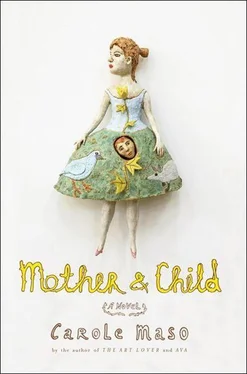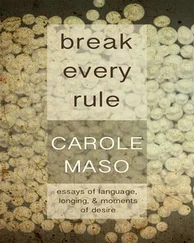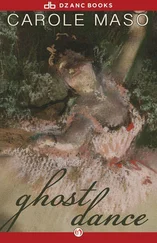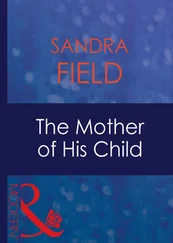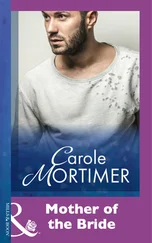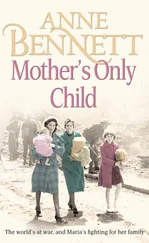More and more the mother found herself in an interim place. She could not get herself to cross over, but neither could she go back. On such days, the tooth was just the thing.
EVERYWHERE THE MOTHER went, she carried the first tooth in her pocket, but one day when she went to feel for it, the first tooth was gone. She was certain she had had it still in the blustery garden, and in the root cellar, and in the smokehouse, so she must have dropped it, she reasoned, in the parking lot of the Stop & Shop.
At night the mother went out into the supermarket parking lot and divided it methodically into quadrants, then took out her broom and carefully began to sweep, the child all the while asleep in her car seat.
The anguished mother, night after night, lights the lamp, sweeps the macadam, and weeps. Never again, she vows, shall she take a tooth, detached from the child’s head, out to the Super Stop & Shop.
IN THE BLUE Park, the Children of the Spectrum feared the sliding pond. They did not care that a box of sparkle awaited them at the bottom. Heights frightened them. The laws of gravity frightened them. They traversed an arc, a continuum that moved from cautious to more cautious to most cautious, from less fearful, to mildly fearful, to paralyzed with fear. Fear of the sliding pond can be attributed to the abnormality in chromosome 15, some members of the community speculate. Yes, and there is always the possibility of Fragile X Syndrome, the mother says.
Take care when walking between the frogs after the rain in spring. Take care when holding the too-soft hand of your grandmother. The Children of the Spectrum moved along a trajectory of carefulness. The mother thought it wouldn’t hurt for more children to be more cautious and less careless in all things.
Blue, removed, fearful of the sliding pond, the child didn’t mind; the child liked the Children of the Spectrum. She did not want to give them the Horse Cure or the Smiling Cure or the Chess Cure like others did. She would sit, if they came, a long time by their sides.

IN THE FACE of the Blue Madness, she thought of the mother she might have turned out to be in the great Midwest with an apron full of palm-of-the-hand babies and wee ones, and how when the funnels came up, she would just stand there with the whole clan until the very last moment. The funnel would be coming right toward them, and she’d open the trapdoor every time with only seconds to spare.
Despite the child and all the palm-of-the-hand babies, of which there are many, the mother’s solitude is cosmic: a force field, and everything is engulfed by it. She was hypnotized by the funnels, she’d say — all that swirling, and she would tilt the babies’ heads toward the green light, and she would hold the child’s hand tightly.
In the face of the whirling world, the mother, with resolve, thought maybe they could tack a few things down, or make categories, or make lists in order to better manage the chaos and the solitude, which were mounting, and this the child approved of, and the mother felt soothed. She closed her eyes and behind them a wall of rain began to fall.
Tears
The mother recalls the magnetic water city — but whether she had produced it with her tears, or it had produced her, she could not say for sure. For the weeks she was there, she never stopped weeping. She recalls water flooding the streets, water turning the girls round and round — and those extravagant fountains. If the insatiable city had produced her, a weeping woman, in a place reliant on weeping for its existence, so be it.
She thought of the painter Titian, and she thought of the painter Tintoretto, and she thought of the Lago di Garda. Perhaps she was part of a larger design she would never see or understand.
All she knew was that she shimmered.
Some days, the mother had the distinct feeling that she had been painted into this ravishing scene, thousands of years earlier, where she had been left to wait. Only today, in the small library, when the child turns the large beautiful pages of the art book, running her hand over the painting, and murmuring says, look! does the mother come to life.
Look!
The people who had assembled in the meadow gasped. The very letters that spelled Spiegelpalais above the mirrored tent seemed to have caught fire. The children climbed the fire truck’s ladder, rung by rung by rung.
At Last the Shark
At last the shark, suspended in a vitrine of formaldehyde, had arrived. It had made its way from across the ocean to the Valley and would remain at the Spiegelpalais for an undisclosed period of time. Many who flocked to the verdant Valley in summer came to view the shark suspended in liquid.
When you visit the shark, the paper had advised, visit it with an open mind. It was meant to be viewed as a work of art, and it was titled The Physical Impossibility of Death in the Mind of Someone Living. The mother and child walked gingerly into the tent. A blue light filled them. In the large tank, nothing moved. The child pressed her hand to the place of the shark’s mouth.
Everything in the world is a substitute for every other thing in the world. Today the mother was quite certain that whatever had once happened to her, whatever she had survived, whatever had brought her here to the Valley, whatever allowed for this — the Spiegelpalais, the child’s hand in hers, the other hand of the child in the shark’s mouth, the shark suspended in its glass case — she was inordinately lucky. Like the shark, she was floating too, outside time, outside space, at the mercy of a merciful universe.
The child thought this was by far the best art show she had ever been to.
A human skull encrusted with diamonds was promised at the Spiegelpalais next.
Next
At the edge of the meadow, a battalion of small children carry a heavy fire hose and put out the fire that has unexpectedly begun in the left ventricle.
Divinity Basket
She wanted to order the man who was her friend a Divinity Basket, with flowers as white as the resurrection, but in all the Valley, there were no white flowers to be had.
Since when are there no white flowers in summer? she wanted to ask the florist on the phone. Since when is a town bereft of flowers in summer? Summer, he says, and even though he is a small businessman, his voice drifts, and he says summer as if it is a question. Yes it is summer, the mother states plainly.
All of the flowers the town possessed within its borders had already been used up on the man who had once shown her the drawing of the gallbladder, the florist tells her.
Now the season will not hold. The path she walks slips back into winter. Like those moving paths in the airport, she now seemed to be moving without taking a single step, toward the funeral home, a place she does not want to go in such a hurry. She worried that cold and flowerless, she would arrive too quickly now to her destination. With or without flowers, the family must arrive to greet the body first.
Standing outside in the chill, the mother thought maybe they should all let up on the flowers a little. Maybe he will suffocate under so many flowers. In the end he was as thin and light as a harp, and perhaps not able to withstand the weight of so many flowers. Had anyone thought of that?
Blind
Before she went blind at the Spiegelpalais, the artist had spent a good deal of time scouring the Valley, traversing both the hills and vales in search of a cardinal that had met its end. It was against the law to shoot or otherwise harm a songbird of any sort for any reason in the Valley, and as a result, each day the artist’s search had grown more and more desperate, as a cardinal was imperative to her next work of art. Though she had ordered hundreds of artificial cardinals over the Internet, not a single one of those cardinals as it turned out would do. She put out an announcement: if anyone in the Valley happens to find a dead cardinal on the path, et cetera.
Читать дальше
